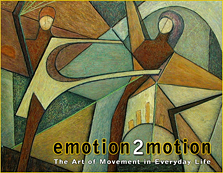Clients often want to know what makes for a “good divorce”. They instinctively know that keeping their children front and center in their divorce process will make for a better outcome for everyone in the family. However, few people seem able to articulate the stages of a process that yields what both spouses feel will be a good outcome.
For many years, people have spoken of Elizabeth Kubler-Ross’s stages of grief in death and dying as a model for the stages that comprise the divorce process, since divorce is, by it’s very nature, a kind of death. In an article written for Elephant Journal in July 2016, Kristin Luce conceptualizes a different series of stages that, from her observations and experiences, “transforms you into a person who is greater, kinder, wiser, softer and more able to stand in your own unique integrity”. A good divorce doesn’t necessarily make you any happier, or more at ease, or even more amicable, but it does fundamentally change who you are.
The first stage that Luce identifies is Agonizing: the stage of contemplating whether or not to separate. It’s a time of considering leaving, while also trying to do anything and everything to salvage the marriage. One or both spouses may be agonizing over a choice. A good divorce at this stage involves “finding, listening to and following your own integrity in this agonizing” process. It isn’t about whether every option was explored or every stone turned. The point of this stage is to shift from the “ideal relationship” to the “actual relationship”, and giving that relationship every possible chance. That, way, each person knows that they’ve done everything possible; in the process, there will likely be some personal reckoning as each spouse learns more about themselves and one another.
Stage 2 involves Committing to Leaving. This may begin with a defining moment or experience, something that jars someone into certain knowledge that the decision to leave is the right one. Maybe your partner has told one too many lies, or has had one too many affairs, or has drained the accounts one too many times. Maybe one person says the “D” word first and the other silently acknowledges the truth of it. Maybe it’s like a light bulb switching on, or off. Whatever the moment, the certainty is that “it’s over”. In a good divorce, this stage develops without judgment or blame. Rather, it reflects an awareness of who each person is, and is not. There is simply a “knowing”, and the trust to be able to “step fully into our own lives, and also into the unknown”.
Stage 3 is characterized by Confusion, Loss and Grief. It is often intermittent, and interspersed with experiences of vitality and joy. The “good” aspect of this time is that it connects each of us to all the other losses we’ve experienced. “Our divorce is inadvertently going to connect us t our mother’s depression, our father’s rage, our own parents’ divorce, or the death of someone we loved”. Whatever the memory, the resurgence of emotions allows for some good, long crying. Luce believes that this grieving can take 5 to 10 years, as it has the ability to ambush us at odd moments of ecstasy and freedom.
Stage 4 is all about Magic and a New Life. Luce states that it is ongoing, like a rebirth, and like discovering that “if you knew how good it was, you would never have agonized for so long”.
She discusses the “magic” of how new people pop into our lives, or old friends re-emerge, how we re-engage with activities we’d forgotten we adore, how we get to know ourselves again. So having a good divorce is about taking your own hand and telling yourself, “Yes, this is a new adventure, and I’m going to do it well and honestly and as kindly as I can — and I’m going to let it change me”. Luce finishes by stating that fulfillment of a good divorce depends on your blossoming authenticity as well as your willingness to embrace the new life you’re about to enter. So for all of the emotional upheaval, a divorce has the capacity to unveil many layers of self, and can facilitate a new way of living one’s life, which is “good” news for anybody that walks down this path.


